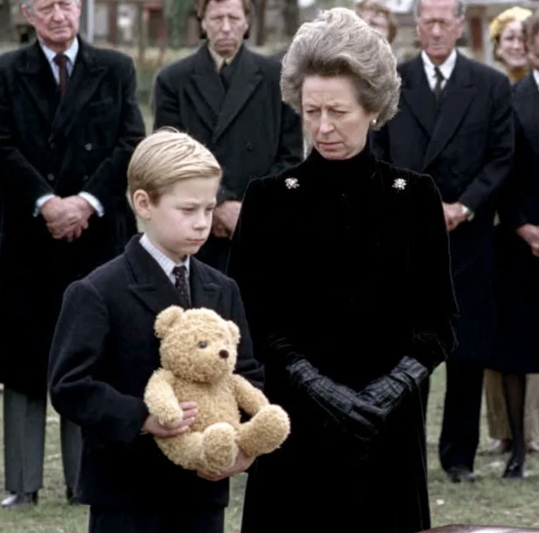When Dana was three years old, the warm light in his world flickered and vanished. It was a gray autumn evening, and his mother had stepped out of the house, her long red scarf trailing behind her. She never came back.
At first, they told Dana that she had to leave for something important. Then, that she had gone to a place far away. Eventually, his father sat him down and said softly, “Mommy’s not coming back.” Dana didn’t ask where. He didn’t cry. He simply fell silent.
From that moment on, he didn’t speak another word.
Doctors examined him, psychologists tried their best, but they all left with the same tired sigh. “Psychological trauma,” they wrote. His father nodded, holding Dana close, trying to make up for what was lost. But grief has a way of haunting not just hearts, but homes. The silence settled in like dust, thick and unmoving.
His grandmother, Vera, tried to fill the gaps. She cooked his favorite meals, took him to the park, read him bedtime stories even though he never responded. Dana, now six, was a quiet ghost of a child, always holding a small, worn teddy bear—its left ear torn slightly, its fur matted with time. His mother had given it to him on his third birthday, just weeks before she disappeared.
His father, Mark, never remarried. He worked long hours but always made time to tuck Dana in at night. “You don’t have to talk,” he would whisper, kissing his forehead. “I know you’re in there. When you’re ready, I’ll be here.”
But the words never came.
Then, one bitter morning in August, everything changed again.
A car crash. Instant. Brutal. Dana’s father didn’t make it.
The house grew colder.
Vera took Dana into her home without hesitation, though the grief in her eyes deepened. For weeks, Dana wandered through her house silently, his teddy bear always in hand. He didn’t cry, didn’t scream, didn’t react. He simply existed.
The funeral came on a rainy Thursday. The church was filled with people—co-workers, friends, distant relatives—all speaking in hushed voices, casting sideways glances at the small boy standing quietly in the front pew.
Dana stood beside his grandmother, a little statue in a black coat, watching the coffin like it was just another object in a room he didn’t belong to. He held his bear tightly to his chest.
The service was somber. One by one, people walked up to the coffin, placed flowers, said their goodbyes. Some wept openly. Some simply bowed their heads.
Vera watched Dana carefully, her wrinkled hand resting gently on his shoulder. She didn’t expect anything—how could she? The boy hadn’t spoken in nearly three years.
But then, just as the priest began the final prayer, Dana looked up at her.
His eyes—those quiet, distant eyes—locked onto hers.
And he said it.
Soft. Clear. Cold.
“He lied about her. She didn’t leave.”
The words struck like a stone through stained glass.
Vera froze. Her heart skipped.
Around them, murmurs began to rise. A few people stopped breathing altogether. One man dropped the program he was holding.
Dana didn’t say another word. He turned his gaze back to the coffin, his expression unchanged.
Vera knelt down, trembling.
“Dana,” she whispered, tears welling. “What did you mean?”
But the boy didn’t speak again. His lips pressed together, and he returned to silence, as if the words had never happened.
The rest of the service passed in a blur. People whispered. Some glanced suspiciously at Vera, others at the coffin.
That night, back at home, Vera tucked Dana into bed. She hesitated before turning off the light.
“Sweetheart,” she said gently, “can you tell me what you meant?”
Dana blinked up at the ceiling. He clutched the teddy bear tighter. And after a long pause, he whispered:
“He told me she left because she didn’t love us anymore. But I heard them. That night. They fought. He was angry. She cried. Then the door slammed. I think she wanted to stay. He didn’t let her.”
Vera’s breath caught in her throat.
For a long time, she sat there in silence, tears slipping down her cheeks. She hadn’t known. Mark had told her the same story he told everyone else. That his wife had left without a word. That she just walked away.
But children remember. Even in silence.
Vera leaned forward and hugged Dana, her frail arms wrapped tight around his small frame.
“I’m so sorry,” she whispered. “You were never meant to carry that alone.”
The next morning, Dana ate breakfast without being told. He still didn’t speak, but something had shifted. There was a weight gone from his shoulders, a new clarity in his eyes. He even looked out the window at the birds in the yard—something he hadn’t done in years.
As the days passed, he spoke again—rarely, and only to Vera. But the silence was no longer a prison. It was just a room he sometimes chose to leave.
Years later, Dana would uncover the truth. A police report, a witness statement, a missing person’s file that had never been properly closed. The full story would take time to unravel. But it began at the funeral, with one sentence.
Just enough to open a door that had been locked for far too long.
And in that moment, as the rain poured over the freshly turned soil, a boy found his voice—and began to reclaim his story.
